A portable AC provides reliable air conditioning, especially where you do not have central or window AC. Because they are mobile, they can easily be moved from one room to another without requiring any extra fittings.
You may be wondering if these air conditioners turn off automatically. We talked to the experts, and here are our findings.
Portable air conditioners are fitted with thermostats that automatically trigger the unit to turn off when room temperature reaches the desired level. This turning off is normal in the unit's operation and does not indicate an issue.
However, the portable AC may also turn off automatically if short cycling. When the AC turns off because it is short cycling, try to determine the cause and resolve it to restore its proper functionality.
There is a lot to learn about portable air conditioners. Dive in to find out why the unit may turn off automatically. We will also tackle ways to troubleshoot your portable AC and how to size the unit correctly.
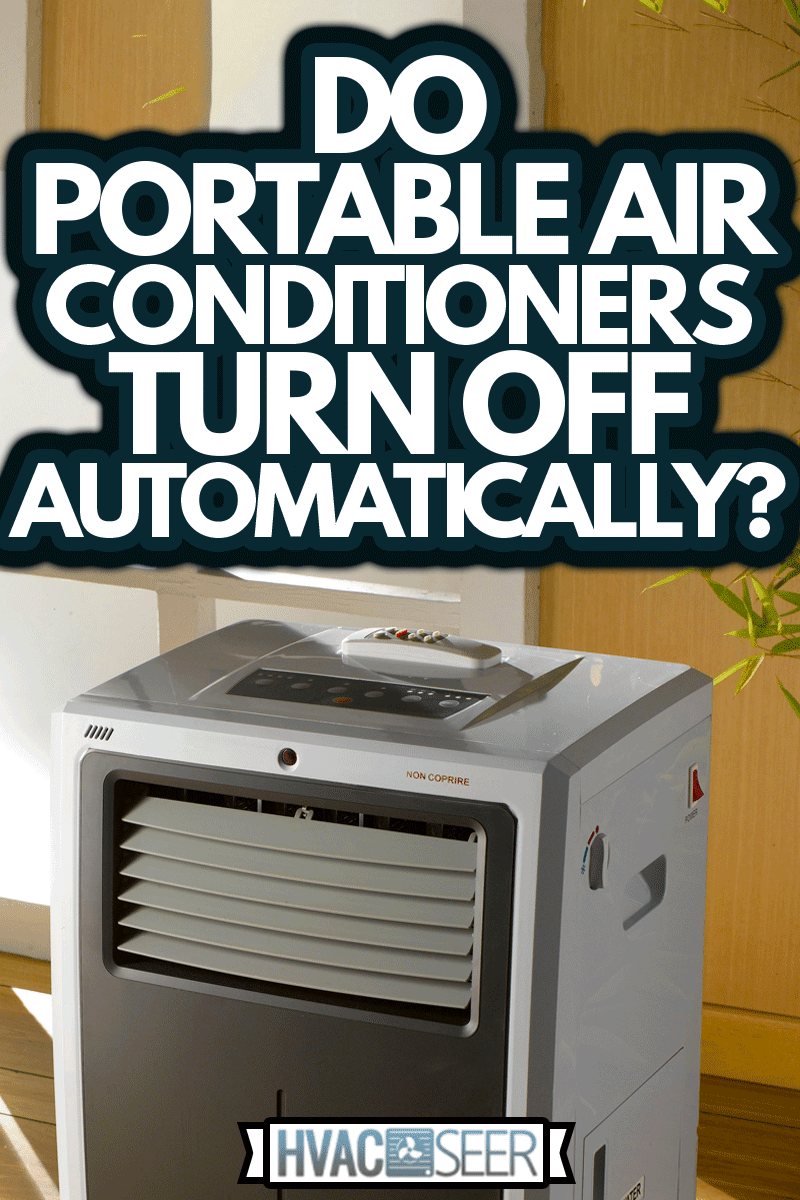
Why does my portable air conditioner keep turning off?
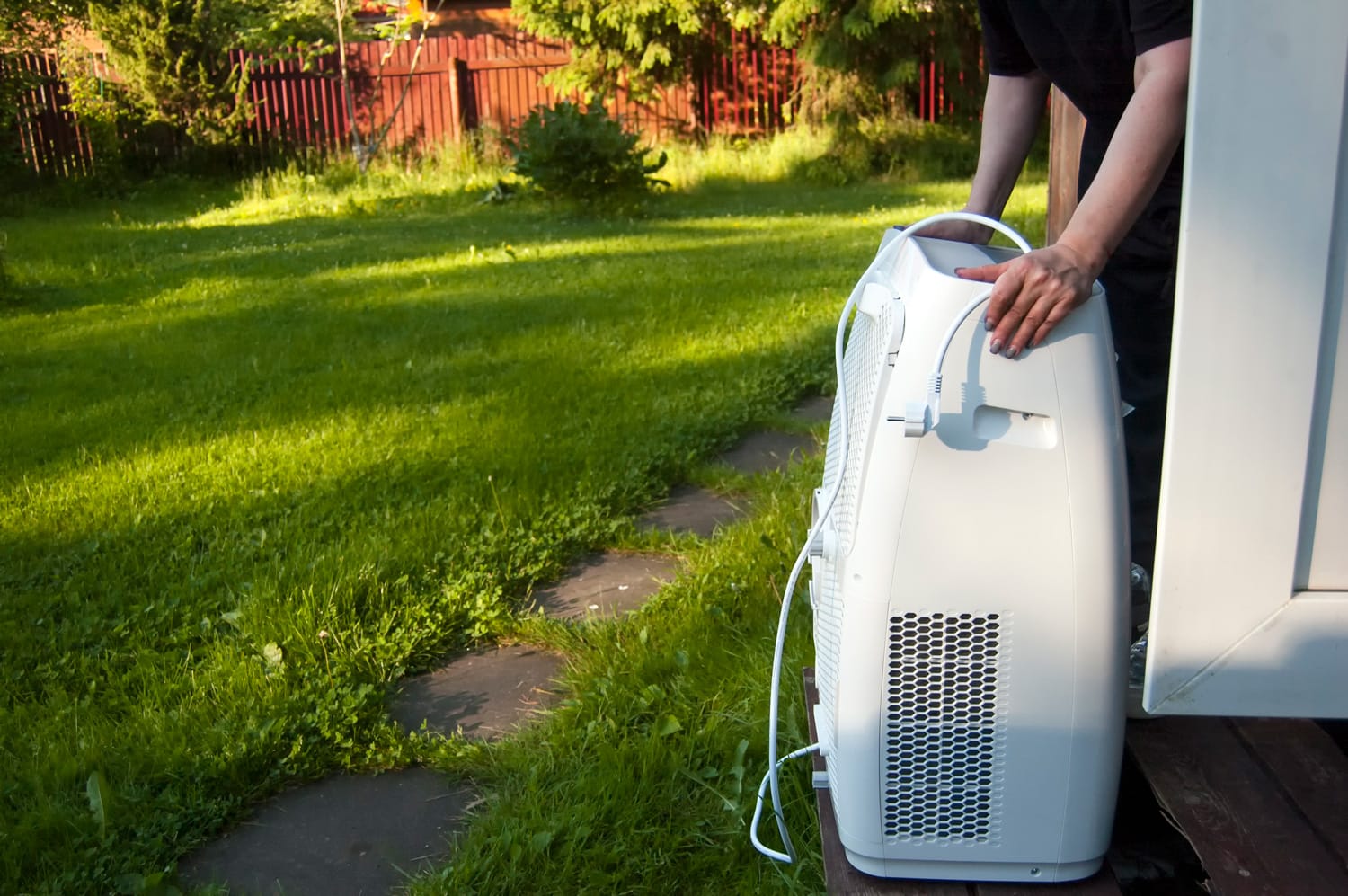
Your portable AC may regularly turn off, which can be quite annoying. While this may be part of your appliance's normal operation, it may also be an indication that the AC is short cycling. Below are some of the reasons why the portable AC keeps turning off:
Reaching The Set Temperature
The portable air conditioner has a thermostat that initiates shutting off when room temperature reaches a pre-determined level.
If the temperature settings are near the room temperature, the air conditioner will switch off frequently as it only requires running for a short while before it reaches the required temperature.
Inadequate Airflow
The filters in a portable AC clean the air by trapping dust and debris, preventing them from being recirculated in the air released from the AC.
When the dirt and debris accumulate, there will be restricted airflow, which forces the compressor to work harder to compensate for this technicality. Consequently, the system may overheat, causing the AC to turn off before the cycle is complete.
Restricted airflow may also result in frozen evaporator coils. The evaporator coils require a specific airflow rate to function optimally.
The coil's temperature will fall below the required level when the airflow rate is lower than the set level. Hence, freezing will result as the coils become very cold.
Clogged Condenser Coils
Blocked condenser coils minimize the airflow rate through them, causing the unit to overwork to cool your room. As the unit overworks to compensate for this shortcoming, it overheats, thus shutting off.
Leaking Refrigerant
The refrigerant absorbs heat from indoor air as it transitions from a low-pressure gas to a high-pressure liquid. When the refrigerant leaks, there will be low-pressure levels in the system resulting in short cycling.
Faulty Compressor Unit
The compressor unit exerts pressure on the refrigerant, causing it to expand. As the refrigerant expands, it draws heat from the air.
When the compressor unit malfunctions, the smooth flow of the refrigerant will be interrupted, causing the unit to overheat. Consequently, the portable air conditioner will shut down.
Defective Electrical Components
Sometimes the portable AC may keep turning off due to an interruption in the power supply. This turning off may result from warped wires, loose connections, a faulty relay, or a defective capacitator.
Oversized Portable Air Conditioner
The cooling capacity of an AC describes how powerful it is. When you use a larger AC to cool a small space, the unit may frequently turn off since it cools the air a lot faster rather than doing it gradually.
As the temperature changes quickly, the unit may experience short cycling. If left unchecked, short cycling can significantly reduce the expected useful life of your unit due to increased wear and tear.
Moreover, faster cooling does not allow enough time to draw moisture from the air, resulting in a damp and uncomfortable environment.
While a smaller portable air conditioner may not automatically turn off during operation, the unit will experience higher wear and tear levels as it will constantly be running to cool your home.
And so, you will incur higher cooling costs in addition to having to replace the unit sooner than anticipated.
How To Troubleshoot A Portable Air Conditioner
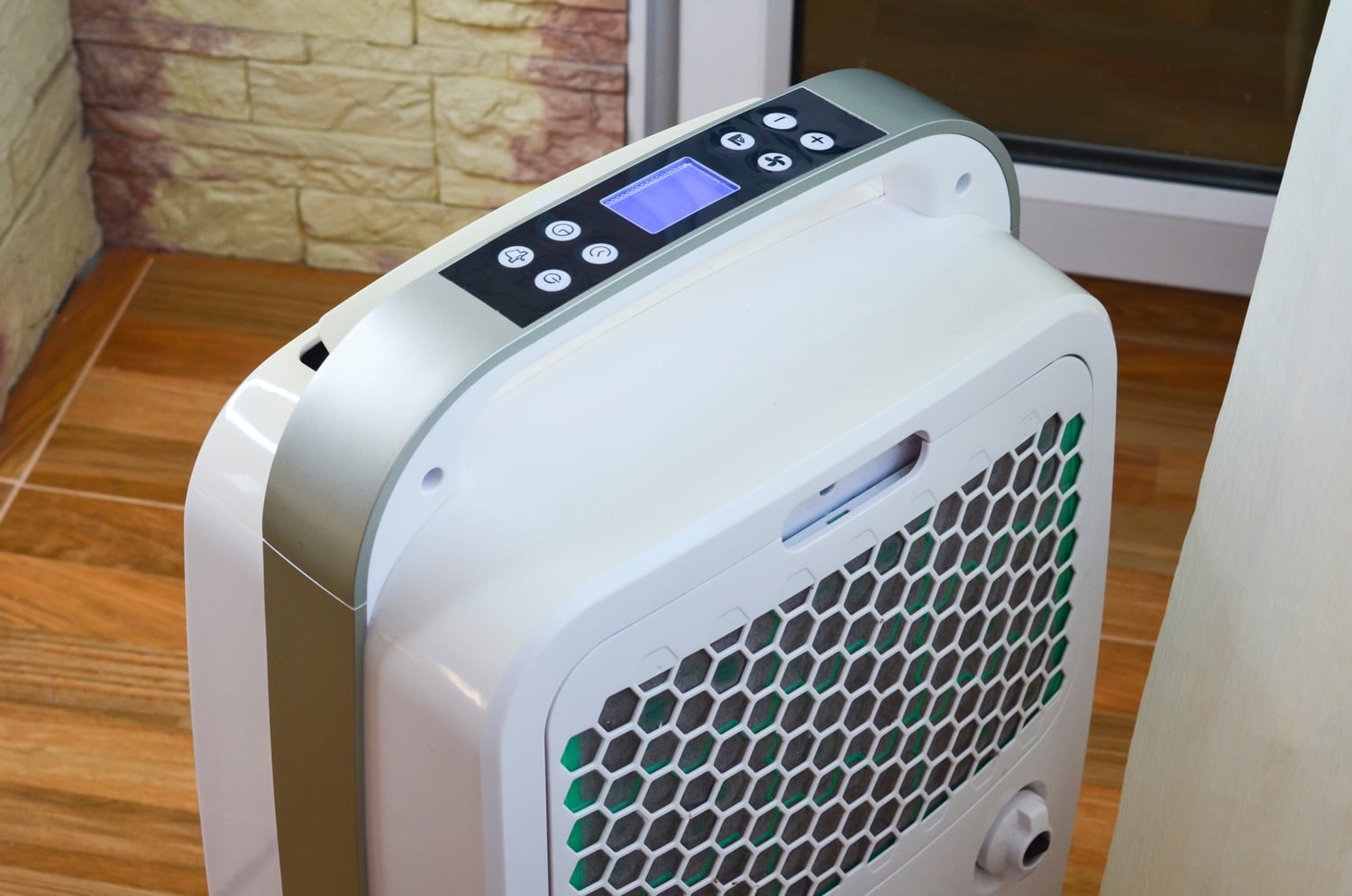
It is quite frustrating when the portable air conditioner does not operate as it should. However, this does not always imply that you need to buy a new portable AC.
The good news is that you can easily resolve some issues that may be causing the AC to keep turning off.
Other issues that will not be addressed in the first three troubleshooting methods below such as a connection problem or power failure may require a technical expert's assessment.
Probe The Temperature Settings
It is advisable to check whether the portable AC's temperature level is set close to room temperature as this would influence how long the AC runs before it shuts off.
Furthermore, if the desired temperature level is achieved, but the room does not feel cool enough, you can adjust the settings then assess whether the unit is operating efficiently.
Enhance Airflow In The Appliance
Begin by removing things that may be interrupting airflow to the AC, such as furniture and boxes around it. Further, inspect the vent hose to ensure that nothing hinders the air currents.
Regularly clean the filters to minimize dirt and debris accumulation. Moreover, clean air filters will minimize the risk of frozen evaporator coils since the system will maintain the required airflow rate.
You have to activate the filter reset indicator to ensure that you clean the air filters when required.
The indicator will automatically turn on when the filter is dirty. You can then decide to wash the filters or replace them, depending on the type of filters installed.
Clean The Condenser Coils
Remove any accumulated dirt on easily accessible condenser coils by gently brushing off the dust using a soft brush.
However, if the condenser coils are not easily accessible, start vacuuming the portable AC to clean them. Take care not to damage the coils as they are very delicate.
Read this article to discover How To Clean Air Conditioner Coils.
Consult An HVAC Technician
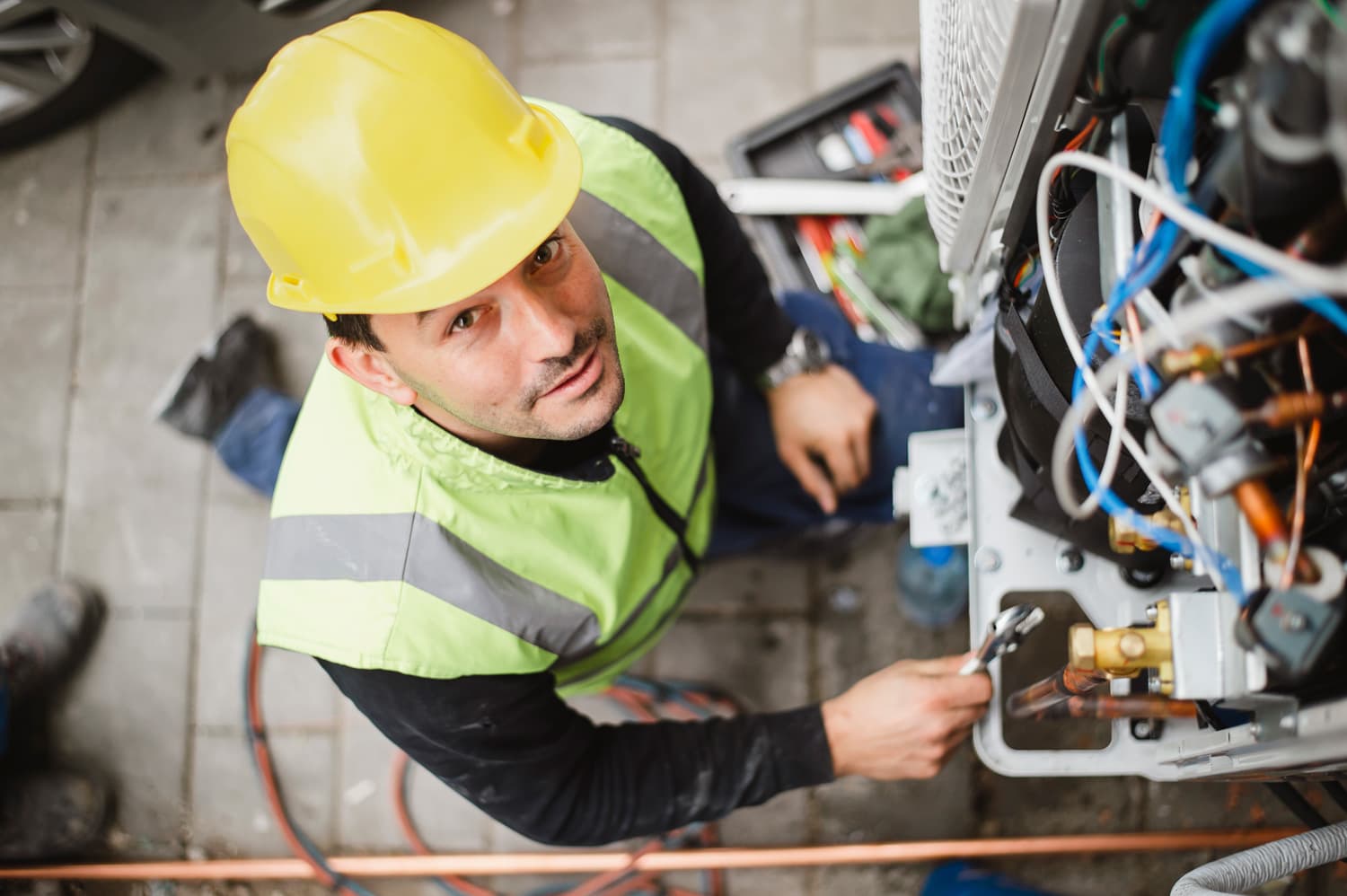
Thoroughly inspect the portable air conditioner to determine whether the refrigerant is leaking. Although this may not be an easy task, check whether there are scratches or bends through which the refrigerant is leaking.
Once you identify where the refrigerant is leaking through and determine how to repair it, add a refrigerant.
Please note that adding the refrigerant through the suction line requires experience. Therefore, it is better to request a technician to do this.
If you suspect that the AC regularly turns off because of defective electrical components, have a technician look at it.
It is prudent to assess whether you should repair your portable AC or buy a new unit depending on the extent of the damage and its remaining useful life. Your technician will help you determine this.
When the compressor is faulty, buying a new portable air conditioner would be a wise decision since repairing the compressor is quite expensive.
How To Size A Portable Air Conditioner Correctly
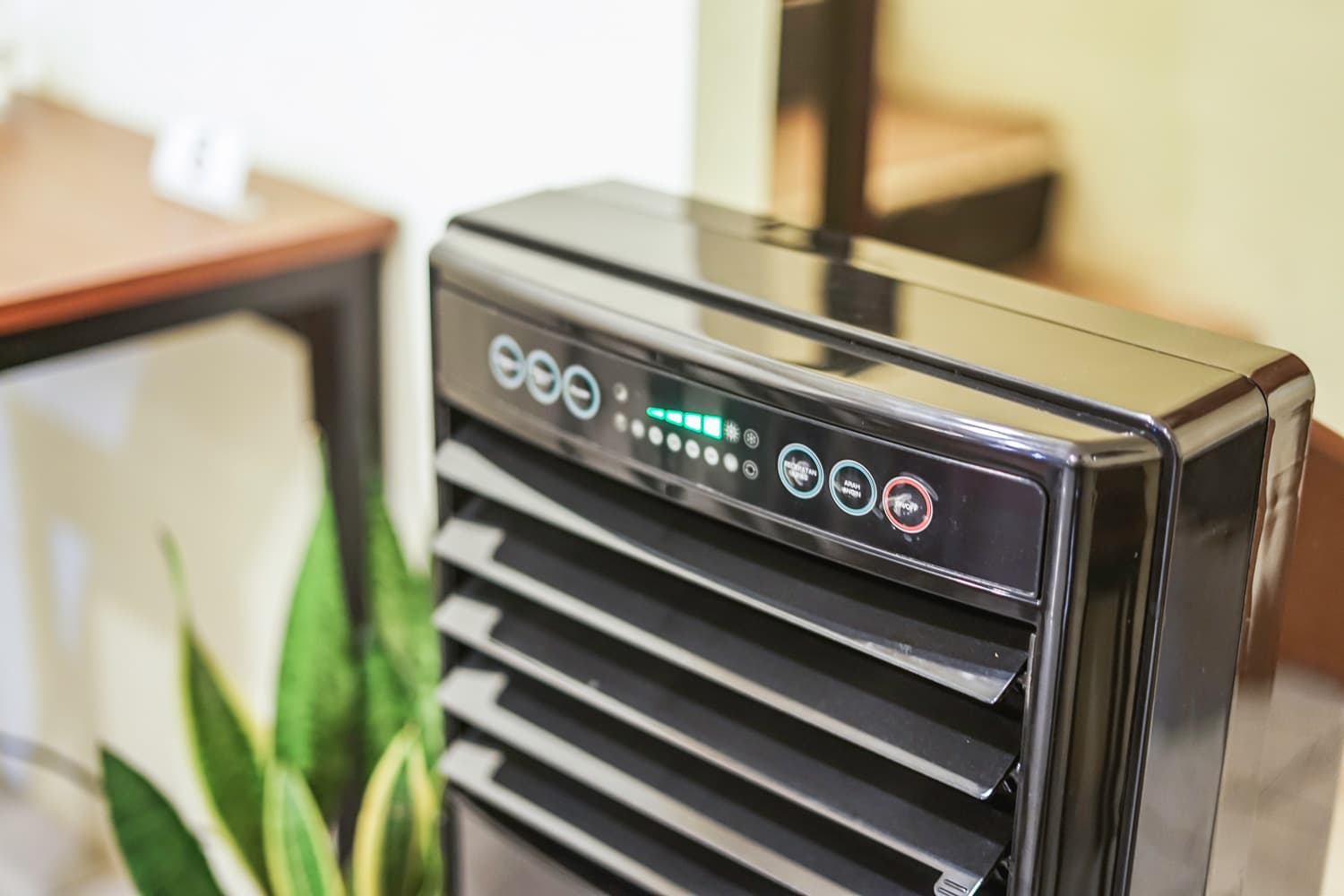
The size of the air conditioner, relative to the size of the room where it is installed, influences its efficiency.
If your AC short cycles because it has a higher cooling capacity than required, you need to replace the unit with an appliance that meets the cooling needs in your home.
Calculating The Correct BTU
An air conditioner's cooling capacity is measured using British Thermal Unit (BTU). As a rule of thumb, a portable AC requires approximately 20 BTU per hour for each square foot of floor spacing you need to cool.
To determine the square footage for square and rectangular rooms, measure the room's length and multiply that by its width. If the room has a different shape besides a square or rectangle, calculate the area of the room by applying the required formula.
For instance, multiply the length and breadth of a room, then halve this area to get the square footage of a triangular room.
If you have rooms that are not separated by doors, add the square footage of these rooms to determine the right BTU range for your air conditioner.
Other Adjustments
Consider other factors such as ceiling height and the size of windows and doorways, in addition to square footage, to determine the BTU requirements.
Standard BTU calculations are based on the assumption that ceilings are up to 8 feet high. For higher ceilings, it is necessary to increase the calculated BTU by 10% for each foot.
It may be necessary to reduce the calculated BTUs by 10% for heavily shaded rooms or where you can block most of the sunlight. Alternatively, you may need to increase the cooling capacity by 10% if the room is very sunny.
Where more than 2 people are regularly expected to be in a room, it is recommended that you add 600 BTUs for each additional person.
Moreover, you have to add 4000 BTUs where the portable AC is installed in a kitchen with heavy appliance use.
In Closing
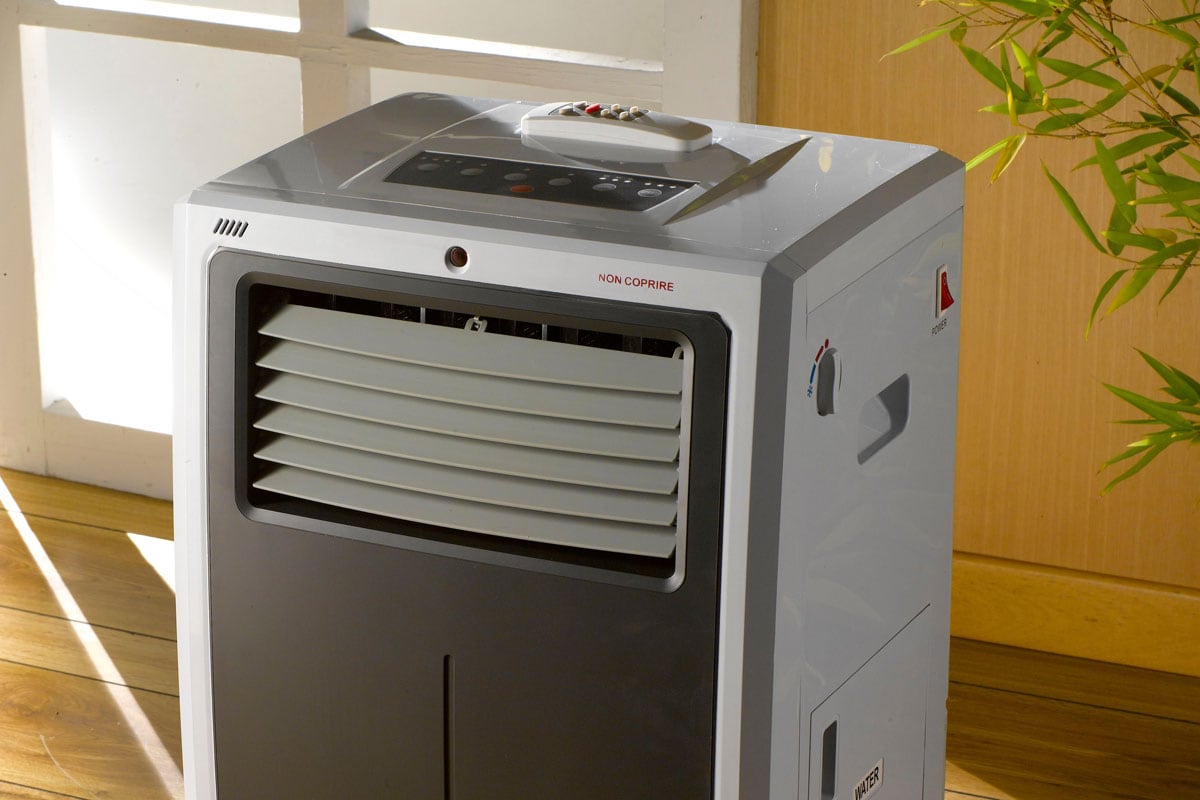
Portable air conditioners may turn off automatically either as part of normal operation or when the unit is short cycling. Probe the trigger and address it to keep your unit running efficiently longer.
If the issue remains unaddressed, increased wear and tear may cause frequent breakdowns, eventually leading to the AC's complete failure.
Regular maintenance ensures that the unit remains in good working condition. Moreover, issues are addressed and resolved in good time before the appliance breaks down.
Before you go, you might want to check out a related article: Portable Air Conditioner Leaking Water – What Could Be Wrong?
